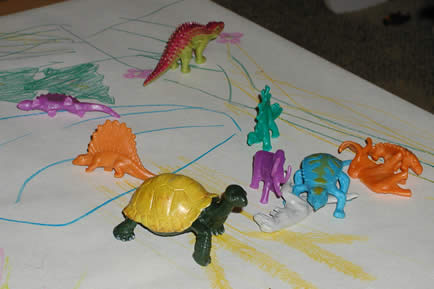I am an introvert.
This should come as no surprise to those who know me. It doesn’t necessarily mean that I am shy, although I am a bit. Shyness and introversion are quite different things. Those familiar with the Myers-Briggs Type Indicator will recall that introverts are characterized by drawing energy from within, easily overstimulated by the external world. Too much stimulation and we need to spend some down time, recharging. Extroverts, by contrast, are energized by the outside world: people, places, things, activities. I’m getting tired just thinking about it.
I’ve known for a long time that I am an introvert. I cannot handle crowds or too much activity, which is why I eschew going places like the State Fair, the Mall of America, and parties. Sometimes even getting together with a close friend is too much to handle. Kiara’s the same way, although less noticeably: she’s not only more extroverted than I, she’s more right-brained, so is a less typical-seeming introvert. On a lark, I picked up a book for her this Christmas: The Introvert Advantage, How to Thrive in an Extrovert World. I expected that it would be fun to read through, pick up some tips for dealing with ardent extroverts like her father. Turns out that it’s packed with all sorts of great information.
What first grabbed my attention is the discovery that introversion is physiological (as opposed to shyness, which is behavioral). Extroverts and introverts actually use different neurotransmitters and different neural pathways to the brain. Introverts’ dominant neurotransmitter, acetylcholine, is associated with the energy-conserving parasympathetic nervous systems and with moving memories into long-term storage. Because introverts operate heavily in long-term memory, when speaking we tend to pause or speak more slowly than most extroverts are comfortable with. I can certainly relate to this, as I’m sure anyone who’s spoken with me much would agree.
Too, the book lists personality traits and habits that I had not associated with introversion, but that I clearly exhibit:
- Reduce eye contact when speaking to focus on collecting words.
- Start talking in the middle of a thought.
- Have a good memory but take a long time to retrieve memories.
- Can forget things they know well — might stumble around when explaining their job or temporarily forget a word they want to use.
- May think they told you something when they just have thought it.
- Rehearse things before speaking (even for casual conversation).
- May not be aware of their thoughts unless they write or talk about them.
- Clearer about ideas, thoughts, and feelings after sleeping on them.
- Immerse themselves thoroughly in a very few subjects.
These are all traits that have their root in physiology. Amazing.
The author is a psychotherapist, and about two-thirds of the book is devoted to suggestions for navigating life as an introvert in an extroverted world, as well as advice to extroverts for dealing with introverts. There are chapters on relationships, work life, parenting, socializing. Frankly, it smacks a bit too much of the self-help genre that I typically avoid, and with this prejudice in mind I doubt that I’ll take much of the author’s advice. Still, it has helped me remember how important it is to take time throughout the day to slow down and recharge.
Fascinating read.
